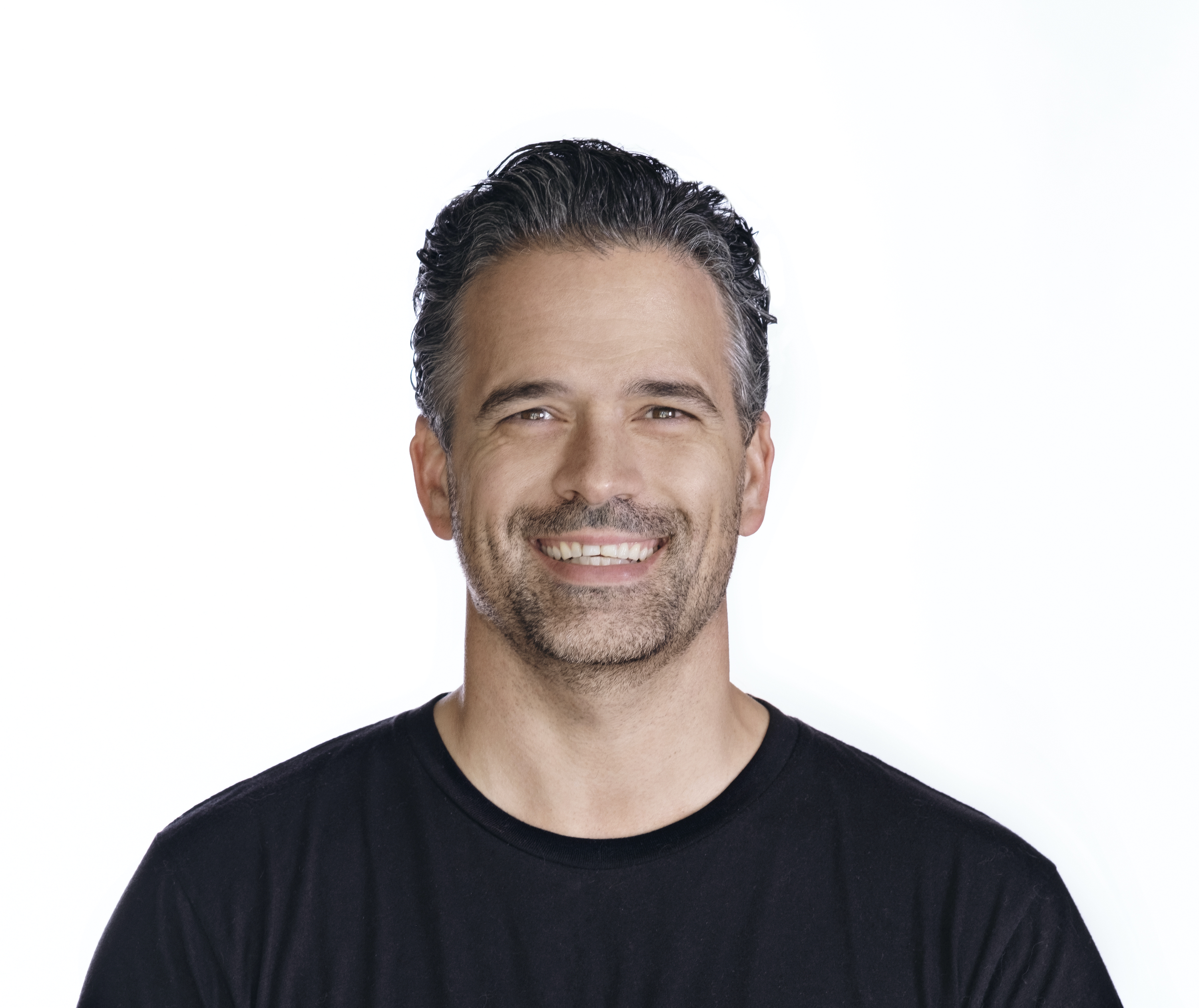People Who Became Successful Later in Life: Stories of Hope, Faith, and Perseverance

Jesse Wisnewski


Professional Development
We live in a world that celebrates speed. If you’re not successful by thirty, it can feel like you’re already behind. But people who became successful later in life remind us that growth doesn’t follow a single timeline.
Many of the most meaningful achievements bloom after long seasons of preparation, struggle, and quiet faithfulness. Scripture reminds us, “For everything there is a season” (Ecclesiastes 3:1). Some seasons are for planting, others for harvest. God’s timeline is not rushed, and His definition of success looks very different from ours.
This article explores how success can grow slowly and beautifully through faith, perseverance, and steady work.
Here is what we will walk through together:
- What Is Success?
- 9 People Who Became Successful Later in Life
- Lessons Learned
Let’s begin by redefining what success really means.
What Is Success?
When people talk about success, they often think of wealth, status, or recognition. But true success is not about speed or applause. It is about faithfulness.
Scripture paints a picture of success rooted in obedience and steady work. God told Joshua that success comes from knowing and following His Word (Joshua 1:8). Jesus praised the servant who was faithful with what he was given, not the one who achieved the most (Matthew 25:23).
Real success grows out of consistent effort, character, and integrity. Hard work is part of that story. Every small task, late night, and quiet moment of perseverance form who we become. Yet even with hard work, results may not come quickly. Waiting seasons are not wasted seasons. They shape patience, deepen wisdom, and teach us to trust that our lives unfold under a sovereign hand.
When you view success this way, comparison loses its power. You begin to see that your progress—even when unseen—still matters.
9 People Who Became Successful Later in Life
The most lasting success stories often start in years of obscurity. The people below faced slow progress, repeated failure, and long waits. They chose faithfulness anyway. Their lives remind us that influence often comes later, when wisdom has had time to grow.
Ulysses S. Grant: The Steady Leader
Before he became a general or a president, Ulysses S. Grant was a man acquainted with failure.
Born in 1822, he graduated from West Point and served in the Mexican-American War, but life after the army was hard. He tried farming and failed. He sold firewood to make ends meet. He even worked in his father’s leather shop. By his late thirties, he felt like life had passed him by.
Then, in his early forties, opportunity came again. When the Civil War broke out in 1861, Grant rejoined the army. Years of quiet struggle had prepared him for the challenge ahead. He rose through the ranks quickly, earning respect for his courage and steadiness under pressure.
By 1864, he led the Union Army to victory, eventually becoming the 18th President of the United States. The man who once sold firewood on street corners now led a nation. His story reminds us that seasons of obscurity can become the training ground for lasting leadership.
John Newton: The Redeemed Writer
John Newton’s story began in rebellion and ended in redemption.
Born in 1725 in London, he lost his mother as a child and joined the Royal Navy as a teenager. His life spiraled downward as he became involved in the slave trade. By his mid-twenties, he was living without purpose or peace.
Then came the storm. At 23, while working aboard a slave ship, Newton nearly drowned during a violent storm in the North Atlantic. Crying out to God, he survived and marked that day as the beginning of his conversion. Over time, his faith deepened and his heart changed.
He became an Anglican minister by 1764 and later mentored William Wilberforce, the man who helped end the British slave trade. Newton’s hymn Amazing Grace, written when he was in his late forties, still testifies to the mercy of God that can reach even the darkest past. His story shows that no one is too far gone for grace to rewrite their life.
Laura Ingalls Wilder: The Storyteller at Sixty-Five
Laura Ingalls Wilder never set out to be famous. She simply loved to write.
Born in 1867 on the American frontier, she grew up in a family that valued hard work, faith, and perseverance. Her life was filled with both beauty and hardship—prairie winters, crop failures, and financial uncertainty.
For decades she worked as a teacher, farmer’s wife, and mother. Writing was something she did quietly. Then, at age 65, she began to put her memories on paper. Her stories of frontier life, first published, 1932, became the Little House on the Prairie series.
Those books, written from the perspective of both struggle and gratitude, inspired generations. Wilder’s words remind us that creativity can flourish at any age and that storytelling often grows out of ordinary, faithful living.
William Carey: The Faithful Missionary
William Carey didn’t look like a world-changer.
Born in 1761 in England, he began as a cobbler, repairing shoes to support his family. While he worked, he read Scripture and maps of faraway places. He developed a burden for people who had never heard the gospel.
At 32, he preached one of the most influential missionary sermons in history: “Expect great things from God; attempt great things for God.” Two years later, by 1793, he sailed for India with his wife and children.
The early years were brutal. He faced disease, poverty, and the loss of loved ones. For seven years, he saw no conversions. But he stayed. His persistence led to the translation of Scripture into multiple Indian languages, the founding of schools, and the birth of the modern missionary movement. Carey’s life reminds us that faithfulness in obscurity can ripple through generations.
Elisabeth Elliot: The Witness Through Loss
At 29, Elisabeth Elliot’s life changed forever.
She and her husband, Jim, had dedicated their lives to bringing the gospel to an unreached tribe in Ecuador. In January 1956, he and four other missionaries were killed by the very people they hoped to reach.
Grief could have ended her story, but faith carried her forward. Elisabeth stayed in Ecuador, living among the same tribe that had taken her husband’s life. Over time, she saw many of them come to faith in Christ.
Later, she returned to the United States and began to write. Her book Through Gates of Splendor, published by 1957, told the story of courage, love, and redemption. In the years that followed, her teaching and writing helped countless people trust God in their suffering.
Elisabeth’s story reminds us that faith doesn’t erase pain, but it gives it purpose.
Ray Kroc: The Visionary at Fifty-Two
Ray Kroc didn’t find success early. He earned it one small sale at a time.
Born in 1902 in Oak Park, Illinois, he spent decades hustling through jobs that paid the bills but didn’t satisfy his ambition. He sold paper cups, played piano in bands, and crisscrossed the Midwest selling milkshake mixers to diners and soda fountains. Most people his age were slowing down. Kroc, at 52, was just getting started.
In 1954, he walked into a small burger stand in San Bernardino, California. The McDonald brothers ran it with precision—fast service, simple food, and happy customers. Kroc saw something they didn’t: a system that could scale nationwide.
Within a year, he opened his own franchise by April 1955. Six years later, he bought the entire company for $2.7 million. His decades of sales experience had prepared him for that moment.
Kroc wasn’t chasing fame; he was chasing excellence. When most people start coasting, he hit full stride. His story reminds us that the foundation for future success is often laid in the seasons no one sees.
Colonel Harland Sanders: The Persevering Founder in His Sixties
Harland Sanders didn’t set out to build a global restaurant chain. He just wanted to make good food and earn an honest living.
Born in 1890 in rural Indiana, he worked almost every kind of job imaginable—farmhand, streetcar conductor, soldier, railroad fireman, and insurance salesman. By middle age, he was running a small service station in Corbin, Kentucky, where he cooked meals for travelers. His fried chicken recipe quickly became a local favorite.
Then, everything changed. When a new highway bypassed his town, his restaurant closed. Sanders was 65 years old. Most people would have given up. He packed his car instead.
He drove across the country, pitching his secret recipe to restaurant owners. Sometimes he slept in his car. Sometimes he was told no before he finished his sentence. In all, he was rejected more than a thousand times before one restaurant finally said yes. That small deal became the seed of Kentucky Fried Chicken, a brand that would span the globe.
Sanders’ story isn’t about luck; it’s about endurance. At an age when many retire, he started over. His persistence turned years of hardship into a legacy that still feeds millions.
S. Truett Cathy: The Servant Entrepreneur Who Took Off at Forty-Six
S. Truett Cathy was never in a hurry. He simply worked hard, served people well, and trusted that good things take time.
Born in 1921, he grew up poor in Georgia, helping his mother run a boarding house during the Great Depression. Those early years taught him two things: people matter more than profits, and doing good work honors God.
At 25, Cathy opened a small diner called The Dwarf Grill in Hapeville, Georgia. It was tiny—ten stools, four booths, and a loyal crowd of factory workers. For two decades, he showed up every day, cooked the food himself, and treated customers like family.
Then, in 1967, at 46 years old, he opened his first Chick-fil-A inside Atlanta’s Greenbriar Mall by 1967. His secret wasn’t just the chicken sandwich—it was the culture. Cathy built his business on integrity, generosity, and rest. He closed on Sundays, offered scholarships to employees, and built trust before profit.
Over time, those quiet convictions turned a small Southern diner into one of the most respected restaurant brands in America. Cathy’s success came not from chasing growth but from pursuing goodness.
Grandma Moses: The Artist Who Started at Seventy
Anna Mary Robertson Moses, known to the world as Grandma Moses, didn’t pick up a paintbrush until most people her age were slowing down.
Born in 1860, she spent her early years working on farms and raising five children. Art was a quiet joy she rarely had time for. When arthritis made sewing painful, she turned to painting. She was 70 years old.
At first, she painted for pleasure—scenes of barns, fields, and snow-covered villages that reflected her memories of rural life. Her work caught the eye of a local collector, and before long, she was exhibiting in New York City by 1940.
By her 80s, she had become an American icon. Her art carried warmth and simplicity that spoke to the human spirit. Grandma Moses proved that creativity never expires. As long as there’s curiosity in your heart, there’s still time to create something beautiful.
Lessons Learned
When you look closely at these lives, a shared pattern emerges. None followed a straight path. Their influence came through perseverance, not prediction. Their stories reveal principles for living faithfully in every season, trusting that God is sovereign over the details.
These are not promises that faith will lead to success as the world defines it. They are reminders that every moment of obedience matters under the care of a good and wise God.
1. Setbacks Prepare You for What’s Next
Failure is often the classroom where God teaches endurance.
Ulysses S. Grant’s disappointments and John Newton’s guilt were not wasted. God used their hardship to shape humility, patience, and conviction. Scripture reminds us that “suffering produces perseverance; perseverance, character; and character, hope” (Romans 5:3–4).
In God’s economy, trials are not interruptions. They are tools of grace that form our dependence on Him. The Lord often uses the very things we would avoid to prepare us for the work He intends to do through us later.
2. Faithfulness in Small Things Leads to Big Impact
Most of life is ordinary. Few of us live on grand stages, but that is where faithfulness is tested and proven.
Laura Ingalls Wilder’s years on the prairie and William Carey’s long obedience in India show that small acts of diligence often yield the most lasting fruit. Jesus said, “One who is faithful in a very little is also faithful in much” (Luke 16:10).
Faithfulness in the everyday is not wasted. When we work with integrity, pray in secret, or serve without recognition, God is honored. Ordinary obedience becomes the soil where extraordinary things grow.
3. True Success Is Measured by Integrity, Not Applause
In a world that prizes visibility, it is easy to believe that recognition equals value. But true success begins with integrity, not attention.
S. Truett Cathy built his business on generosity, honesty, and trust. Elisabeth Elliot obeyed God through loss, not applause. Both remind us that “what is exalted among men is an abomination in the sight of God” (Luke 16:15).
Success in God’s sight looks like consistency, honesty, and faithfulness in what He has given you. It may never make headlines, but it will stand when applause fades.
4. It’s Never Too Late to Begin Again
God’s plans are not limited by our timelines.
Ray Kroc was 52 when he opened his first McDonald’s. Colonel Sanders was 65 when KFC took shape. Grandma Moses began painting at 70. Their examples show that purpose is not tied to youth but to God’s providence.
The Lord renews strength at every age. “Even to your old age and gray hairs I am he; I am he who will sustain you” (Isaiah 46:4). Our culture may celebrate early achievement, but God delights in continued faithfulness. If He gives you breath, He still has work for you to do.
5. Waiting Builds Wisdom
Patience is one of God’s most effective teachers.
The years between promise and fulfillment often shape the heart more than the destination itself. William Carey labored for seven years before seeing his first convert. Laura Ingalls Wilder waited decades before writing her first book. Waiting taught them perspective, humility, and perseverance.
James wrote, “Let perseverance finish its work so that you may be mature and complete, not lacking anything” (James 1:4). Seasons of waiting refine our faith, helping us value God’s timing more than our own.
6. Hard Work Still Matters
Grace does not eliminate effort. It redeems it.
Each of these individuals worked diligently through long, difficult seasons. Scripture ties diligence to wisdom: “The soul of the diligent is richly supplied” (Proverbs 13:4). Work is not punishment but participation in God’s design.
When you labor with excellence and humility, you mirror the faithfulness of the Creator who works all things for good. Work done with integrity becomes a quiet form of worship.
7. Perspective Changes Everything
When you measure your life by faithfulness instead of outcomes, discouragement loses its grip.
Many of these stories—Grant’s failures, Carey’s discouragement, Wilder’s long delay—could have been seen as wasted years. Yet under God’s providence, those seasons were necessary.
As Paul wrote, “We walk by faith, not by sight” (2 Corinthians 5:7). Trusting God’s unseen work brings peace when visible progress feels slow. Perspective rooted in faith frees us from the burden of controlling results.
8. Purpose Outlasts Achievement
The most meaningful work often continues long after we are gone.
John Newton’s hymn Amazing Grace still leads hearts to repentance centuries later. Elisabeth Elliot’s writings continue to comfort those walking through grief. Their obedience bore fruit beyond their lifetimes.
Jesus said, “Do not lay up for yourselves treasures on earth... but lay up for yourselves treasures in heaven” (Matthew 6:19–20). Earthly achievements fade, but a life rooted in God’s purposes leaves an eternal mark.
9. Build Relationships and Character Before Recognition
Public influence grows out of private integrity.
Ulysses S. Grant’s humility and S. Truett Cathy’s quiet service began long before anyone noticed them. Their hidden years built the character they needed to steward responsibility later.
Peter writes, “Humble yourselves, therefore, under God’s mighty hand, that he may lift you up in due time” (1 Peter 5:6). Character developed in obscurity is what God often uses to sustain influence in the light.
These principles are not formulas for guaranteed success. They are signposts for a faithful life under God’s providence.
He calls us to perseverance when results seem distant. He grows character through disappointment. He teaches us that every act of faithfulness—seen or unseen—matters to Him.
You may never see the full impact of your obedience, but you can trust this: God is using your faithfulness to accomplish His good purposes. Success in His kingdom is not measured by how fast you rise, but by how steadily you walk with Him along the way.
It’s Never Too Late
Grant, Newton, Wilder, Carey, Elliot, Kroc, Sanders, Cathy, and Grandma Moses each show that success does not belong only to the young or the lucky. It belongs to those who persevere with purpose.
Life is not a sprint toward recognition. It is a steady walk of faithfulness under God’s hand. You do not need to be first to finish well.
If you feel behind, take heart. God is still writing your story. Every season has value. Every effort matters. Keep working, keep trusting, and keep showing up. In His timing, it is never too late to live a fruitful and faithful life.











